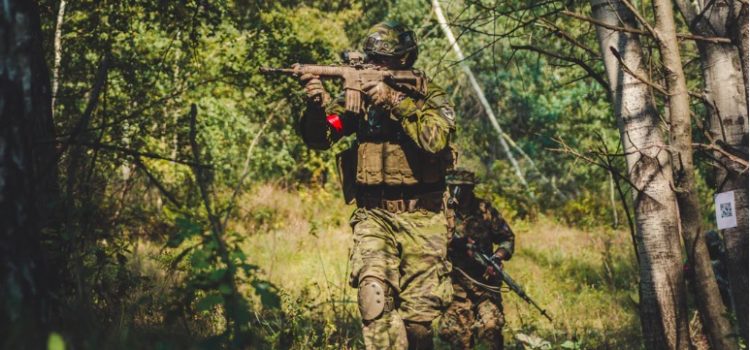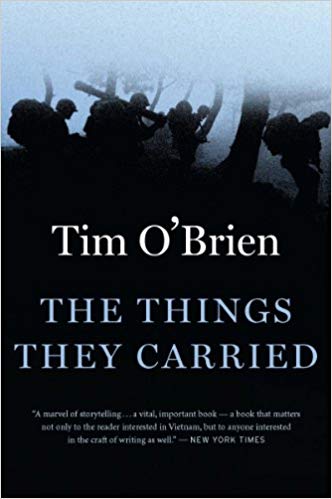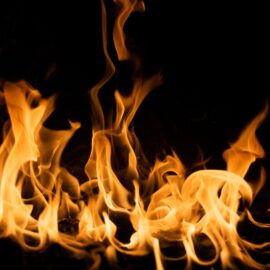

This article is an excerpt from the Shortform summary of "The Things They Carried" by Tim O'Brien. Shortform has the world's best summaries of books you should be reading.
Like this article? Sign up for a free trial here .
What happens in the chapter “The Ghost Soldiers” in The Things They Carried? How does the “The Ghost Soldiers” chapter reflect the themes of the novel?
We’ll look at the basic elements of the chapter “The Ghost Soldiers” (The Things They Carried) and look at how its themes of revenge convey the brutality of men on the same side of the battlefield.
“The Ghost Soldiers” (The Things They Carried)
In “The Ghost Soldiers” in The Things They Carried, O’Brien reflects on two separate occasions in which he was hit by gunfire in Vietnam. The first time was when Rat Kiley was still with the company. As a skilled medic, Kiley had been able to successfully apply a compress, stop the bleeding, and get O’Brien to an emergency evacuation helicopter. O’Brien even recalls Rat Kiley almost hugging him as he was being helped into the chopper. After a short hospital stay, O’Brien returned to the company in the field.
When he returned, however, he discovered that Kiley was no longer with the unit, having suffered his own gunshot wound and transferred to a hospital in Japan. What really happened, however, was much more disturbing. Kiley had, in fact, suffered a mental breakdown, believing that the insects in the jungle were personally out to get him. He had begun compulsively scratching himself, eventually covering himself in scabs and open sores. The strain of his job as a medic, having to constantly attend to the dead and dying, had finally pushed him past his limits. In desperation, Kiley shot himself in the foot to get out of active combat duty, although Cross told Kiley that he would present it as an accident to the military authorities.
He was replaced by a new medic named Bobby Jorgenson, who was young, inexperienced, and badly unprepared for when O’Brien was shot on a second occasion, this time in the buttocks. Jorgenson failed to treat for shock and did a shoddy job stitching the wound. As a result, O’Brien became infected and nearly succumbed to gangrene. “The Ghost Soldiers” in The Things They Carried follows O’Brien’s experiences after being injured.
O’Brien recovered following a painful hospital stay, after which he was transferred out of active combat into a Headquarters Company battalion supply base. While still in a war zone, he was relatively safe from the day-to-day perils of warfare (although the compound still came under the occasional mortar fire). He recalls his old Alpha Company comrades coming in one week when they were on stand-down (a period of time when they were temporarily out of the field). O’Brien remembers how different he had already become from the rest of them. They were still combat soldiers, while he now felt like a civilian. He was no longer part of the blood fraternity.
Revenge in “The Ghost Soldiers”
In his new assignment, O’Brien had time to reflect on his experience of getting shot and came to hate Bobby Jorgenson for the incompetence which nearly led to his death. “The Ghost Soldiers” in The Things They Carried, he brooded over this and yearned to exact revenge on Jorgenson. While Alpha Company was at the base, Jorgenson and O’Brien accidentally ran into one another. Jorgenson was embarrassed and tried to apologize to O’Brien, explaining that he had been paralyzed by fear when he saw that his fellow soldier had been shot and that it was up to him to save his life. Jorgenson told O’Brien that he had been suffering from recurring nightmares and trauma thinking about what happened to O’Brien. But O’Brien was unable to move on—his experience in the war and the things he’d seen had turned him into a crueler, meaner version of his former self. He was now capable of evil.
O’Brien decided to psychologically torment Jorgenson and turned to the darkly cruel Azar for help. They chose a night when they knew Jorgenson had been selected to pull night guard duty as their moment to strike, knowing how ghostly and terrifying nights in Vietnam could be, when one’s mind tended to run wild with the worst fears imaginable. As he recounts in “The Ghost Soldiers” in The Things They Carried, all of the potential horrors of war could be projected onto the blackness of the night. O’Brien and Azar knew that Jorgenson would be at his most psychologically vulnerable when he was alone in the dark.
They hid in the bushes outside the perimeter around the base and set up a series of homemade booby traps and noisemakers designed to make Jorgenson think that the Vietcong was attacking. They filled cans with ammunition and attached them to pulley ropes. When Azar and O’Brien tugged on the ropes, the cans would rattle in a way that completely unnerved Jorgenson. They did this on-and-off at irregular intervals, ratcheting up the psychological tension. Next, they set off trip flares to mimic the visual of an impending enemy attack.
While he was doing this, O’Brien imagined himself floating above Jorgenson, seeing the young man’s abject terror. In this moment, O’Brien saw himself as the horror of the war embodied. But at this point during the elaborate revenge scheme, O’Brien tells us that he began to feel some kinship with his victim. Jorgenson finally understood what it meant to be scared in war, how the fear robbed you of your humanity and sanity. This is the theme of “The Ghost Soldiers” in The Things They Carried.
O’Brien asked Azar to stop, feeling that his need to psychologically balance the equation with Jorgenson had been met. But Azar was unable to stop, instead carrying the “prank” to more and more extreme lengths, firing off more flares and even tear gas grenades at Jorgenson. O’Brien himself was cowering in fear and shock and pleading with the sadistic Azar to stop. Jorgenson eventually fired back at the “enemy,” impressing O’Brien with how cool and collected he was. It is only at this moment that Jorgenson realized the whole ordeal was a prank. Azar left, disgusted with O’Brien, labeling him the “sorriest fuckin’ specimen I ever seen.”
———End of Preview———

Like what you just read? Read the rest of the world's best summary of "The Things They Carried" at Shortform . Learn the book's critical concepts in 20 minutes or less .
Here's what you'll find in our full The Things They Carried summary :
- What the Vietnam War was like for soldiers on the ground
- How Vietnam soldiers dealth with the psychological stress of death around them
- How fictional stories can be truer than the truth






